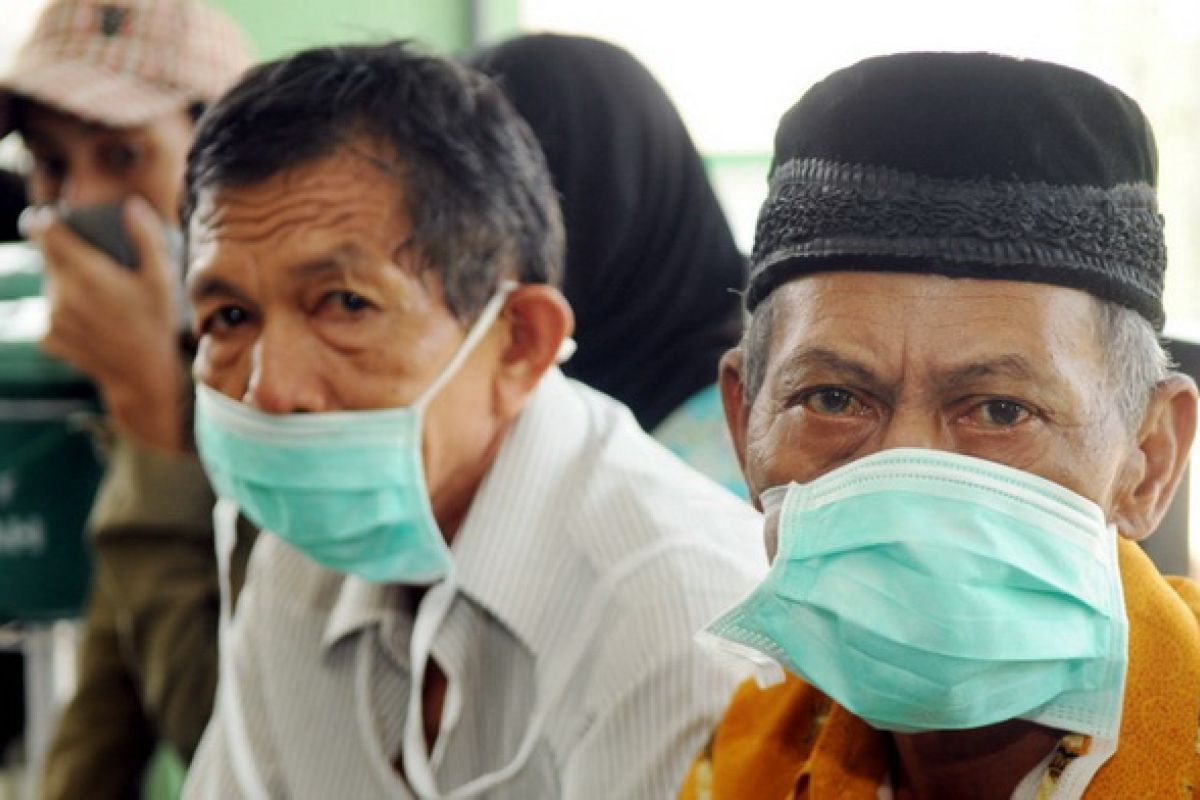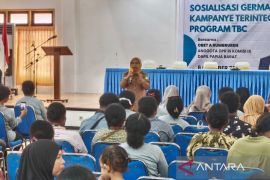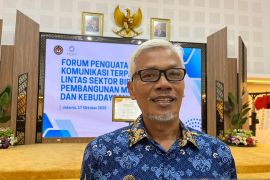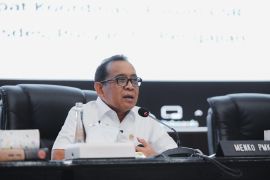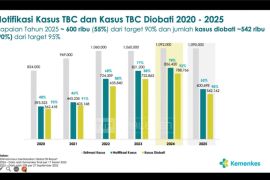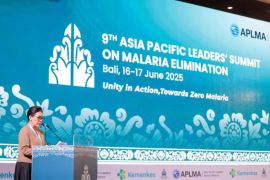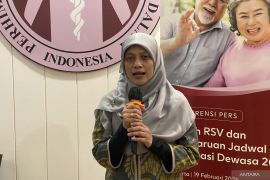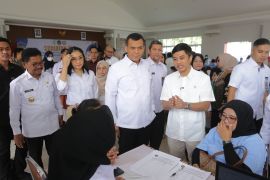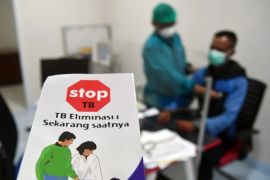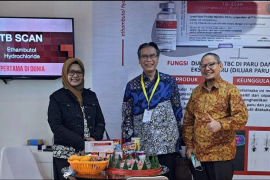"Indonesia is committed to intensify efforts to cut off the spread of TB among people."Jakarta (ANTARA News) - Daeng Nuru from Langkai island, South Sulawesi province, sits for five hours in a small boat to get to Research Center for Lung Health in the province`s capital city Makassar.
"I am sick. I have been coughing for more than three months. I want to get my health checked at the center to make sure whether I`m infected by Tuberculosis or not," he said.
He mentioned one of his relatives told him that the research center provide free medication and health service to cure TB. Thus, he dares to leave his home and sail for five hours to the Lung Research Center with the hope he can be cured.
Awareness of TB sufferers in Indonesia to get medication is improving during the past 20 years. This can be seen from World Health Organization`s (WHO) data announced last March 2013 about the decreasing number of TB sufferers in South East Asia.
Significantly fewer people are dying of tuberculosis today in South-East Asia compared with 1990, according to the World Health Organization.
The death rate due to the disease has decreased by more than 40% in the past 13 years. This achievement is attributed to greater public awareness of TB, an increased number of cases being detected, and more people having access to adequate treatment because of the sustained efforts by Member States, assisted by WHO.
As access to TB care has expanded substantially, the number of people with TB, or the TB prevalence rate, has also declined by a fourth in the Region compared with 1990. All 11 Member countries of the Region have adopted the WHO Stop TB Strategy.
More than 88% known TB patients have been successfully treated. Five countries have had a bigger treatment success rate: Bangladesh (92%), Bhutan (90%), Democratic People's Republic of Korea (90%), Indonesia (90%), and Nepal (90%).
In the case of Indonesia, it was able to lower TB incidence by 45 percent in 2010 from that in 1990. The number of TB sufferers in 1990 was 343 per 100,000 people and it dropped to 189 suffers per 100,000 persons of the population in 2010.
Besides, during the period Indonesia was also able to lower the prevalence of TB by 35 percent where the prevalence of TB in 1990 was 443 per 100,000 persons and later dropped to 289 per 100,000 people in 2010.
The success story makes Indonesia optimistic of being able to achieve one of the eight Millenium Development Targets (MDGs) which is reversing TB incidence by 2015.
Health Ministry`s Director General for Disease Control, Tjandra Yoga Aditama, said the ministry is now focus on providing the best health service for TB sufferers with the hope it can effectively cure patients.
"Indonesia is committed to intensify efforts to cut off the spread of TB among people. Related government bodies and people need to cooperate to realize this," he said.
However he also noted some challenges in tackling TB spread namely the possibility of having more sufferers in the future due to economic gap and the presence of Multi-Drug Resistant TB sufferers.
USAID Award
Apart from WHO acknowledging Indonesia`s effort in eradicating TB, the United States through its Agency for International Development (USAID) also expresses its appreciation to Indonesia.
Last March 23, USAID presents The Champion Award for Exceptional Work in the Fight Against TB to Indonesia`s Health Ministry for its success in significantly reduce the number of Tuberculosis sufferers in the country.
According to a publication released from USAID Indonesia, control of TB requires prompt diagnosis and complete treatment with antibiotics.
Incomplete treatment can lead to multi-drug resistance (MDR TB) a serious public health threat. The number of MDR-TB cases in Indonesia are rising, making Indonesia's ability to diagnosis and successfully treat TB even more critical.
To stop the spread of TB and MDR-TB, USAID recently announces its support towards Indonesia's National TB Control Program to expand diagnosis and treatment of TB and MDR-TB and implement an effective and comprehensive TB program in the public and private sector. To date, Indonesia has diagnosed 569 MDR-TB patients, initiated treatment for 359 patients and cured 19 patients.
USAID helps laboratories across Indonesia establish their capacity to detect MDR-TB. Assistance includes training of laboratory technicians, refurbishment of laboratory facilities, and introduction of new diagnostic technologies.
Five laboratories have been certified after achieving the global standard for first and second line drug susceptibility testing including two in Jakarta, and reference laboratories in Surabaya, Makassar, and Bandung.
Five more laboratories have been renovated and will be certified. This effort greatly expands national capacity to detect drug resistant TB.
USAID is also supporting the National TB Program to introduce the Xpert technology in Indonesia, as part of a three-country global pilot activity to test the effectiveness and impact of the Xpert technology in a range of treatment settings.
The introduction of Xpert is expected to have a major impact on Indonesia's ability to detect TB and MDR-TB and ensure that patients receive appropriate treatment immediately, stemming the spread of infection and saving lives.
(T.A051/O001)
Reporter: Amie Fenia Arimbi
Editor: Priyambodo RH
Copyright © ANTARA 2013
